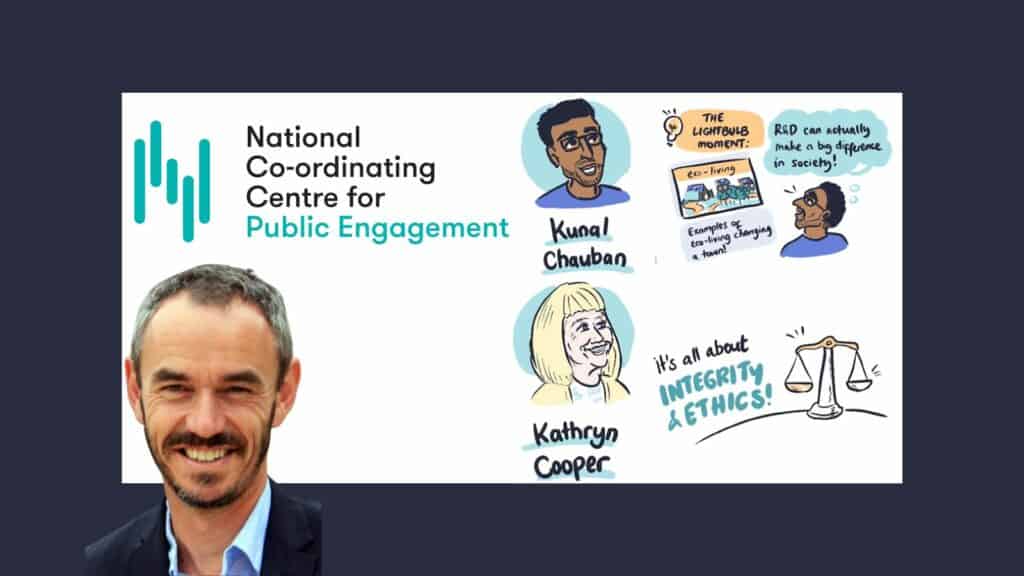Tamsin Mann, Director of Policy & Communications at PraxisAuril, on the importance of understanding and unlocking the full potential of knowledge exchange.
The R&D Decade and the role of the knowledge exchange professional
06 Jul 2021
PraxisAuril’s annual conference, held online last month, opened with a talk by Professor Chas Bountra, Vice-Chancellor for Innovation at the University of Oxford. He spoke about how Oxford’s scientists, industry partners and professional support staff had worked together to deliver a Covid-19 vaccine in record time. For PraxisAuril – the UK’s membership organisation for knowledge exchange (KE) professionals – his recognition of the contribution of knowledge exchange staff was significant, alongside his statement that “The UK is the world leader in KE, nowhere else does it better.” His statement is a sentiment not often heard in innovation policy discourse, where the UK is more often chided for ‘being great at science but poor at commercialisation’ (which the government’s R&D roadmap has as “…we underperform in innovation compared to research”).
CaSE’s R&D Decade campaign is, we hope, an opportunity to reset and start the collective journey more positively. After all, no-one feels like doing more when they constantly told that they’re ‘poor’ at doing what they do, especially when KE data – the measure of sector outputs by income and number of engagements – improve year-on-year and now top £5 billion, when the UK has the global number 1 university incubator (SETSquared), and when we see such creativity and collaboration in tackling innovation and productivity challenges across the country, for example, through Research England’s Connecting Capability Fund projects that tackle place-based, sector-specific, and research-led KE challenges. The latter are powerful demonstrations of what targeted KE funding can achieve in a short space of time (3 years) with active facilitation and a mission-focus.
Amplifying and diversifying the KE voice
At PraxisAuril we challenge the dominant view about innovation not just by pointing to evidence that shows an annual increase in those data, but by promoting a broader discussion of KE and the benefits it brings to a variety of external organisations through many different ways of working, across many different research disciplines. This is part of the R&D story and one that we hope can be amplified through our membership of CaSE and support for the R&D Decade campaign. The Oxford vaccine development raised awareness of the role of university-business collaboration, supporting long-term relationships with companies, such as Astra Zeneca, and technology transfer, agreeing IP licensing terms, but probably only to an already well-informed audience: we need to reach beyond that.
Knowledge Exchange comes in many forms. Some of it is high profile, much is not. Some is high (monetary) value, much is not but has other values to the organisations and people involved. Most KE involves many people from different organisations in what is often referred to as a team sport. If it is a sport, then it is usually more cross-country run than 100 metre dash.
Most importantly, KE is about people; working together and problem solving, often across disciplinary and/or industry sector boundaries. It is engagement at the very early stages of a possible new product or service where the risk for industry alone is too great. In this respect, universities and research organisations provide a safe space to bring people together, identify common challenges, or access novel technology and expertise. The people who support that activity – the KE professionals who make up the bulk of PraxisAuril’s membership – are not often talked about as part of our national R&D narrative, but they are an important part of the team.
Conversations about R&D tend to focus on the investment needed to reach 2.4%, closely followed by discussions about infrastructure and ‘place’. Those targets and amounts matter but turning the focus to R&D culture and advocating for better public understanding of how R&D works, and the people involved, should bring R&D stories alive. We’re seeing something of that with UKRI’s 101 jobs campaign, to change the image of ‘lone scholar’ research, and in the Technician Commitment led by Midlands Innovation.
Let’s pull back the lens further to include research managers and KE staff too. Let’s talk about career pathways, movement of people, their skills, knowledge and experience. Add let’s talk about R&D culture collectively rather than maintaining a ‘third stream’ mentality when it comes to university-business collaboration.
By putting the KE in R&D, knowledge exchange professionals can be proud of their role in achieving many of the laudable aims of the R&D Roadmap, which has KE at its heart, and the growing excitement around opportunities from right across the research base – illustrated by the British Academy’s KE in SHAPE report launched last month – and the potential for levelling up that KE offers through a focus on regional collaboration, for example.
Changing the narrative
The KE Concordat, a significant undertaking by the sector to advance knowledge exchange practice, is about leadership and addressing KE culture in universities (research institutions could use the same framework) with the aim of moving KE to the centre of institutional conversations and activity. This initiative is necessary because KE is so important to our R&D future, but there are still challenges when it comes to bringing research and business cultures together. This is partly to do with how we talk about KE, and R&D.
The key adverbs and adjectives that tend to pepper statements about R&D and innovation these days are based around betterment: revitalise, resilience, unlock, unleash, aspirations, ambition, responsive, agile, fit-for-purpose. If you consider the converse of these words and phrases, the research, development and innovation landscape can seem rather lethargic which I really don’t think is the case.
You might also get the impression that the research base is un-dynamic, un-creative and not able to work at pace to meet significant challenges. We’d say that the response to COVD-19 demonstrates that the opposite is true. Clearly the government would like to capture some of that dynamism when we return to a more ‘normal’ state of affairs but we should acknowledge that we cannot work in crisis mode all the time.
Adam Stoten, PraxisAuril Board member and COO at Oxford University Innovation during that pandemic vaccine effort (now at SVP Innovation at EvoTec) put it well in a blog written in summer 2020. For Oxford and the wider UK university community, the crisis “represented a chance to step up and show just how agile, adaptable and effective [universities] can be at solving problems that truly matter to society, and for knowledge exchange professionals to play a small but vital role in enabling this to happen”.
Our next steps are to share learning from the pandemic, through events such as annual conferences but also through engagement with the wider R&D stakeholder community that CaSE represents. As Adam put it, by doing so “we hope that the importance of university KE is recognised fully not only by us as practitioners, but by government and – perhaps most importantly – by the general public who stand to benefit most from the impact of our efforts.”
PraxisAuril is the UK’s membership organisation for Knowledge Exchange professionals, providing professional development, advocacy and connectivity for the KE profession. Find out more at www.praxisauril.org.uk.
Related articles

The People’s Vision for R&D was a public dialogue project CaSE commissioned to explore society’s stake in R&D. The project was run by the National Centre for Social Research and the National Coordinating Centre for Public Engagement. Here, NCCPE Co-director, Paul Manners, blogs about his experience of the project, and shares some personal lessons learned.

Dr Catherine Pointer, from the Experimental Cancer Medicine Centre in Southampton, talks about her appearance at Voice of the Future and her inspiration behind her work

Jillian Sequeira on this weekend’s March for Science and the importance of funding scientific research and creating evidence based policy

Roger Highfield, director of external affairs at the Science Museum Group, talks about valuing science – not just by Government but as a pillar of culture